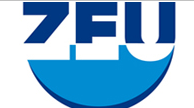Cooperating Partners
- Cooperating Projects & Institutions
-
Center for international Development and Environmental Research (ZEU)
Justus Liebig University Giessen
- The Center for International Development and Environmental Research (ZEU), which has been conducting applied developmental and environmental research on an international scale at Justus Liebig University since 1998, mainly works in an interdisciplinary manner. Its orientation – with respect to subject and content – towards environmental and developmental aspects is based on the idea that ecological and economic influencing variables are mostly interdependent and should thus be treated in an interdisciplinary way. Sustainable solution strategies require a just access to resources for everyone, which can only be realized via the appropriate institutional parameters. Hence, the ZEU's problem-oriented approach focuses on providing an interface between social and natural sciences.
-
Political Processes of Bioeconomy between Economy and Ecology (Bio-Ecopoly)
University of Hagen and Otto von Guericke University Magdeburg
- Bio-Ecopoli is a joint project of University of Hagen and Otto von Guericke University Magdeburg. The research investigates subareas of bioeconomy which lead to conflicts of goals between environmental protection and economic development. It centers on questions of political design when dealing with conflicting goals: on measures of bioeconomy policy in the field of tension between economy and ecology. Various dissemination activities help to anchor the research findings permanently in science and practice. Annual transdisciplinary status workshops accompany the project and ensure the transfer of knowledge between project and bioeconomy practice.
-
Green Transformations in the Global South (GreeTS)
Technical University Darmstadt
- The project “Green Transformations in the Global South (GreeTS): opening the blackbox of a pro-active state and the management of sustainability trade-offs in Costa Rica and Vietnam” analyzes the causes, consequences and different practices and types of far reaching sustainability changes as they evolve from the energy and land use sectors. The research group will open up the black box of “the state” in both countries, specify concepts like state-society relations, political autonomy and transformations, and provide insights from substantial cross-sectoral empirical research in the two countries.
-
Bio-economic Power in Global Supply Chains: Approaches, Impacts and Perspectives on Certification and Due Diligence for Biogenic Mass Raw Materials (Bio-Power)
University of Freiburg
- The overall objective of the project is to formulate recommendations for action regarding the possibilities and limits of corporate due diligence and certification systems in the global value chains of biogenic mass raw materials. Germany and the European Union (EU) are highly dependent on the import of various biogenic mass raw materials. Many of these raw materials used in the food sector as well as in industrial production and energy use. It is well known that the extraction and production of bulk commodities in non-OECD countries is closely associated with social and environmental problems. These problems range from the excessive use of agrochemicals to the financing of armed conflicts. In order to achieve a bioeconomic transformation, the challenge is to influence today’s situation as well as the medium- to long-term impacts and exploitation of increasing demand, while simultaneously maintaining important ecosystem services, minimizing conflict potential and increasing global socio-economic opportunities.
- Cooperating Experts
-
Prof. Dr. Peter H. Feindt
Humboldt University of Berlin
- Prof. Dr. Peter H. Feindt is Professor of Agricultural and Food Policy at the Department for Agricultural Economics at Humboldt University of Berlin. He further functions as the Chair of the Scientific Advisory Board on Agrobiodiversity and Genetic Resources at BMEL as well as a Co-Editor of Journal of Environmental Policy and Planning. His fields of expertise are strategic communication, environmental policy analysis, policy deliberation, public participation, agricultural and environmental policy, social-ecological research, interdisciplinarity and transdisciplinary research.
-
Dr. Ksenia Gerasimova
University of Cambridge, Centre of Development Studies
- Ksenia Gerasimova has been working as an independent expert for industry and public sector in the areas of innovations and sustainable development, including the Marketing Agency of the Ministry of Tourism of Ireland, Russian foundations, and regional authorities in Volgograd area, Russia. She has also worked in projects in the area of international development for Population Council (Cairo Office, Egypt), Council of Europe and the International Federation of Red Cross and Red Crescent. In 2011, she worked as intern in the United Nations Research Institute for Social Development (UNRISD).
-
Prof. Dr. Andreas Klinke
Memorial University of Newfoundland, Canada
- Andreas Klinke is Associate Professor at the Environmental Policy Institute and the Department of Political Science at the Memorial University of Newfoundland, Canada, since September 2011. From September 2017 to August 2018, he is on sabbatical leave and a Senior Research Fellow at the Institute for Advanced Sustainability Studies (IASS) in Potsdam. He acted as Director of the Environmental Policy Institute and Chair of the Graduate Program Master of Arts in Environmental Policy from 2015 to 2017. He has further been active as a Research Associate and Lecture at different universities. His research fields include governance research, social science risk research, global environmental politics, philosophy and sociology of uncertainty and risk, and democracy theories.
-
Prof. Dr. Jale Tosun
University of Heidelberg
- Jale Tosun is Professor of Political Science at the University of Heidelberg. She completed her PhD at the University of Konstanz on the topic of transformative change of environmental policy in Latin America and Eastern Europe. Jale Tosun was a Research Fellow at the Mannheim Centre for European Social Research before coming to Heidelberg in October 2013 as an assistant professor of International and Comparative Political Economy. Her teaching and research focuses mainly on the comparative study of regulation in areas of environment, energy, and climate change, as well as on distributive conflicts within the European Union and the influence of the EU on regulatory measures in third-party states.
-
Dr. Sabine Weiland
Lille Catholic University
- Sabine Weiland is associate professor of political science at Lille Catholic University, affiliated with the European School of Political and Social Sciences (ESPOL). She is the director of the MA food policy programme. Sabine Weiland holds a PhD in social sciences from the University of Göttingen, Germany. She participated in various German, European and international research projects in the field of environmental governance, policy assessment, and science-policy interface. Before her appointment at the Lille Catholic University, she was working at the Helmholtz Centre for Environmental Research – UFZ, Leipzig, Freie Universität Berlin, Catholic University Louvain, and IDDRI/Sciences-Po Paris. Her research focusses on environmental and sustainability governance, food policy, the role of knowledge in policymaking, reflexive governance and policy learning. Sabine Weiland is the spokesperson of the Working group ‘Environmental Politics/Global Change’ of the German Association of Political Science (DVPW).







